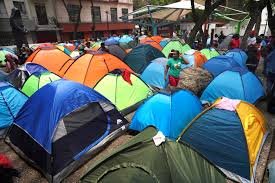A Global Problem in Local Clothing
Mexico City has recently found itself at the intersection of culture, commerce, and controversy. As remote work surged post-pandemic, the city became a hotspot for digital nomads, especially from the U.S. and Europe. While this influx has brought economic opportunities and international attention, it has also accelerated gentrification—pushing out locals, inflating prices, and reshaping neighborhoods at an alarming rate.
At first glance, the presence of new cafés, coworking spaces, and art galleries might seem like progress. However, for many lifelong residents, this transformation feels more like an invasion than innovation. Rent prices in popular neighborhoods like Roma and Condesa have soared, and the cost of basic goods and services has followed. A city once known for its affordability and community cohesion is now experiencing deepening class divides.
The root issue isn’t foreign presence—it's the imbalance of power and purchasing ability. With higher income levels, many foreign remote workers can outbid locals for housing, often without understanding or respecting the cultural context they’ve stepped into. Meanwhile, landlords prioritize short-term gains over long-term community stability by favoring Airbnb-style rentals over local tenants.
Local resistance is growing. Activists and residents are calling for regulations on short-term rentals and for policies that protect housing as a right, not a commodity. Some initiatives aim to educate newcomers on responsible tourism and ethical integration into communities. But change will only happen if both the government and the global community of travelers recognize the real human cost of gentrification.
Gentrification in Mexico City is not just a local issue—it’s a symptom of a global trend where economic mobility clashes with rooted communities. The solution lies in mutual respect, policy intervention, and conscious living. We must ensure that progress doesn’t erase the very culture that draws people to these places in the first place.


